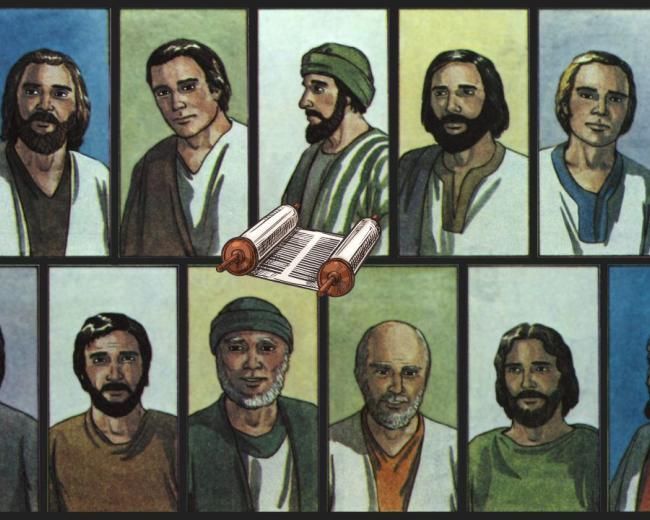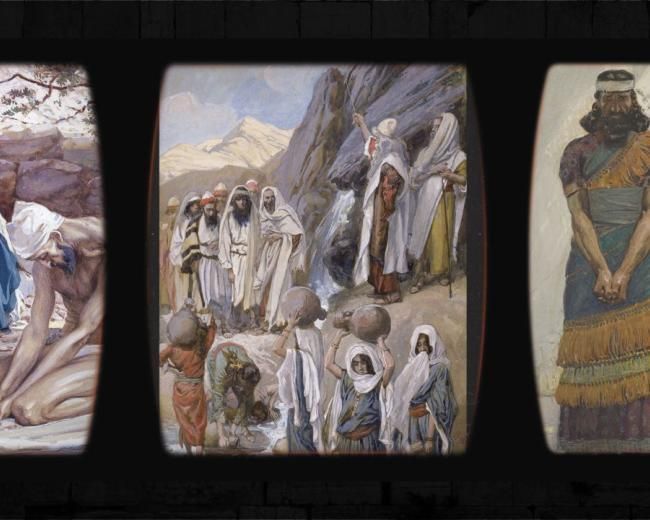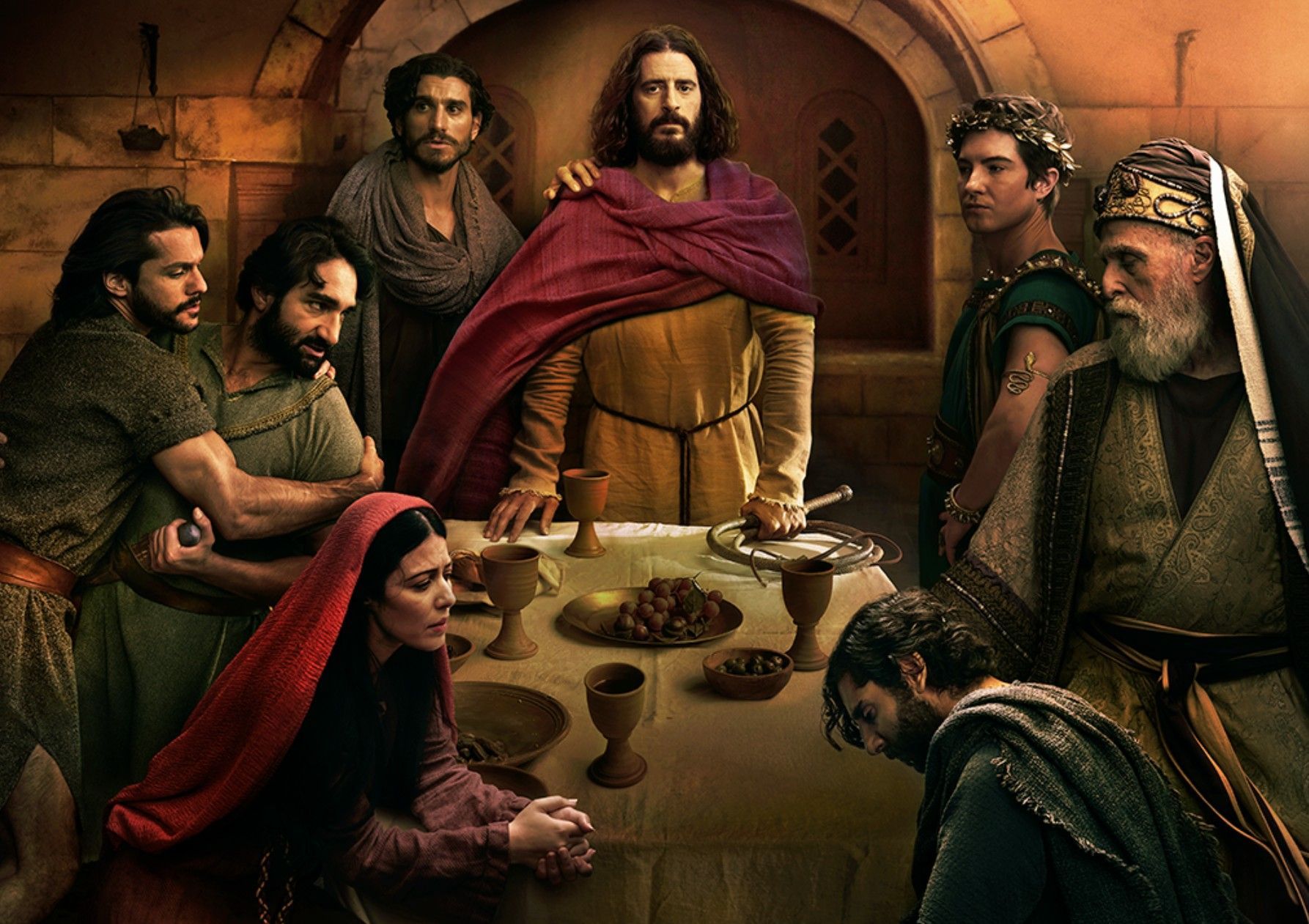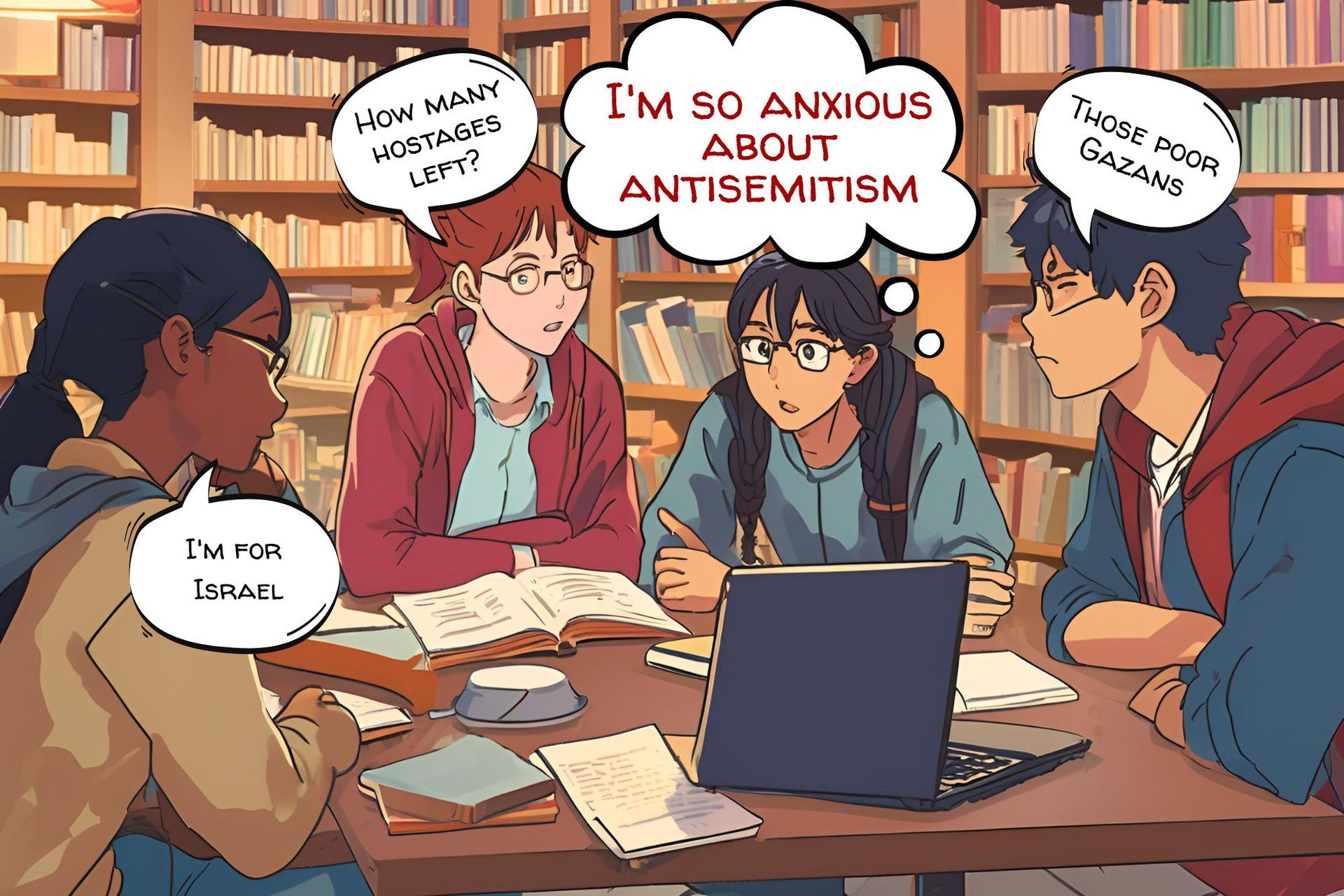This opening story stirred me because I am passionate about a similar problem among Christians. In our entirely typical and well-intentioned churches and seminaries, we talk about Jews in the past tense, those Pharisees and Sadducees who rejected Jesus as the Messiah. Never mind that nearly all the followers of Jesus in the Gospels and into Acts 10 are faithful, Torah-observant, temple-going Jews!
Dara’s point is that many Americans have no idea how to relate to living, breathing Jews, only dead ones like Anne Frank. Is this true in our churches, too?
Image of disciples on right from Good News Productions International and College Press Publishing via FreeBibleImages.com
This opening story stirred me because I am passionate about a similar problem among Christians. In our entirely typical and well-intentioned churches and seminaries, we talk about Jews in the past tense, those Pharisees and Sadducees who rejected Jesus as the Messiah. Never mind that nearly all the followers of Jesus in the Gospels and into Acts 10 are faithful, Torah-observant, temple-going Jews!
Dara’s point is that many Americans have no idea how to relate to living, breathing Jews, only dead ones like Anne Frank. Is this true in our churches, too?
Image of disciples on right from Good News Productions International and College Press Publishing via FreeBibleImages.com





